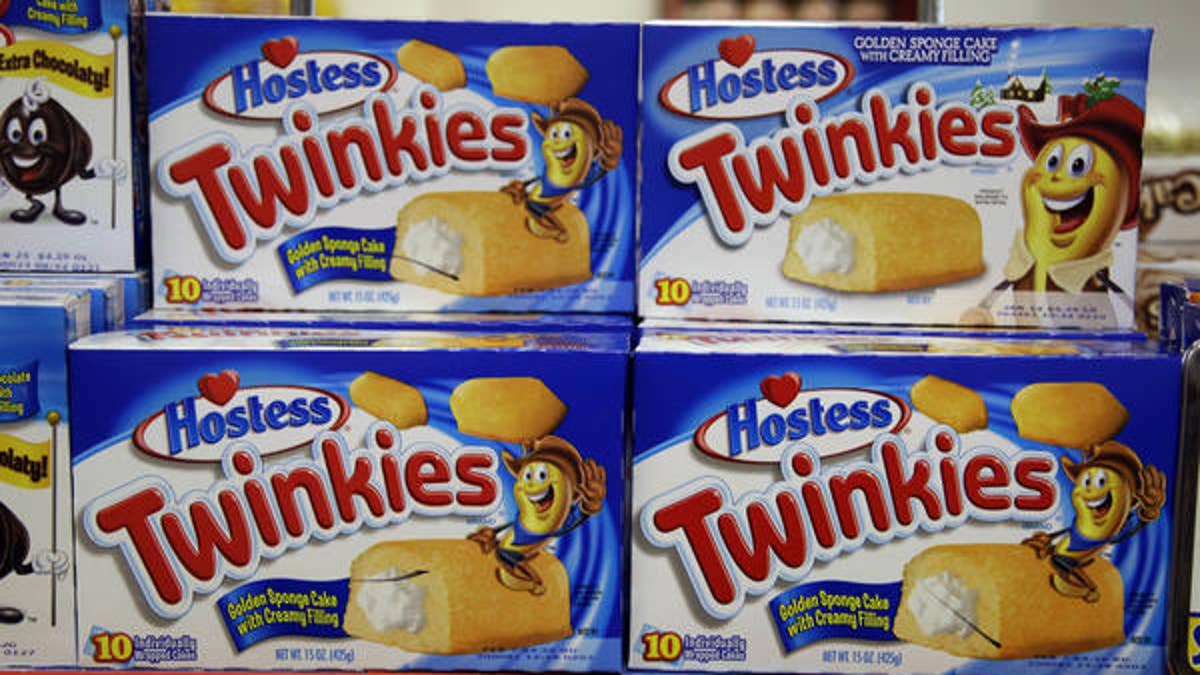
Twinkies on display in a grocery store in 2012. (AP Photo)
Amid rising obesity rates in the U.S., there some good news in the sweets department.
Americans are purchasing 24 percent fewer cookies, cakes pies and other store bought desserts than they did a nearly a decade ago, according to a new study published in the Journal of the Academy of Nutrition and Dietetics.
But according to the research, there's little nutritional value in these items--something that has barely changed in 7 years despite the trend toward healthier food options.
Analyzing data from 2005 to 2012, a team of researchers, led by Dr. Kevin C Mathias from the Nutrition Department at the University of North Carolina, looked at items like Hostess Twinkies and Entenmann’s cookies and packaged doughnuts and pastries. Called Ready-to-eat grain-based desserts (RTE GBDs), the team said these items contributed significant amounts of sugar and saturated fats to the general American diet.
"The results of this study indicated that larger wide-scale efforts are needed among public health officials and all manufacturers of RTE GBDs to shift consumer purchases towards products with lower energy, sugar, and saturated fat content," Dr. Mathias said.
The good news is that overall attitudes toward pre-packaged foods are likely changing based on purchase data. But the relatively high fat and sugar content of the foods being purchased continues to pose a problem.
The researchers recognize that creating new recipes for baked goods can be difficult—especially when try to mimic the exact taste and texture of the original product—but hope that manufacturers will start to develop healthier alternatives.
Even if these products were altered, the team noted that without proper information, consumers may be misled into purchasing even more of these “healthier” desserts.
One suggestion made by the study is for food companies to adopt labeling systems that place the nutritional info on the front of the package, the researchers surmise that consumers may trend toward picking products with less fat and sugar.
